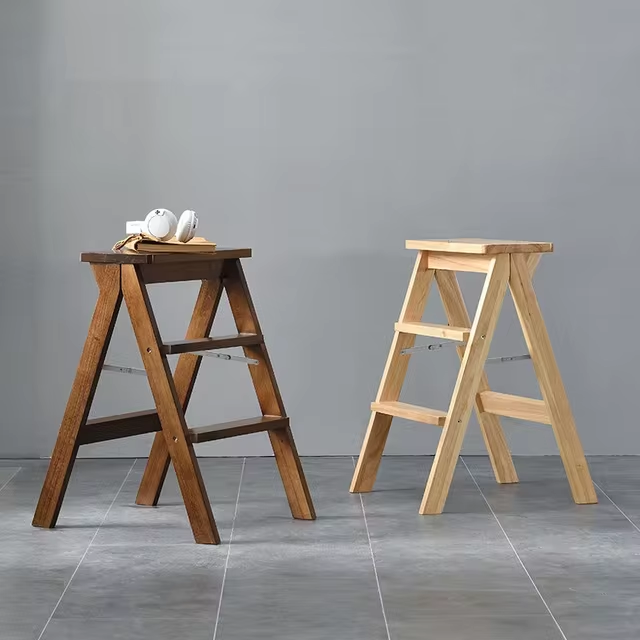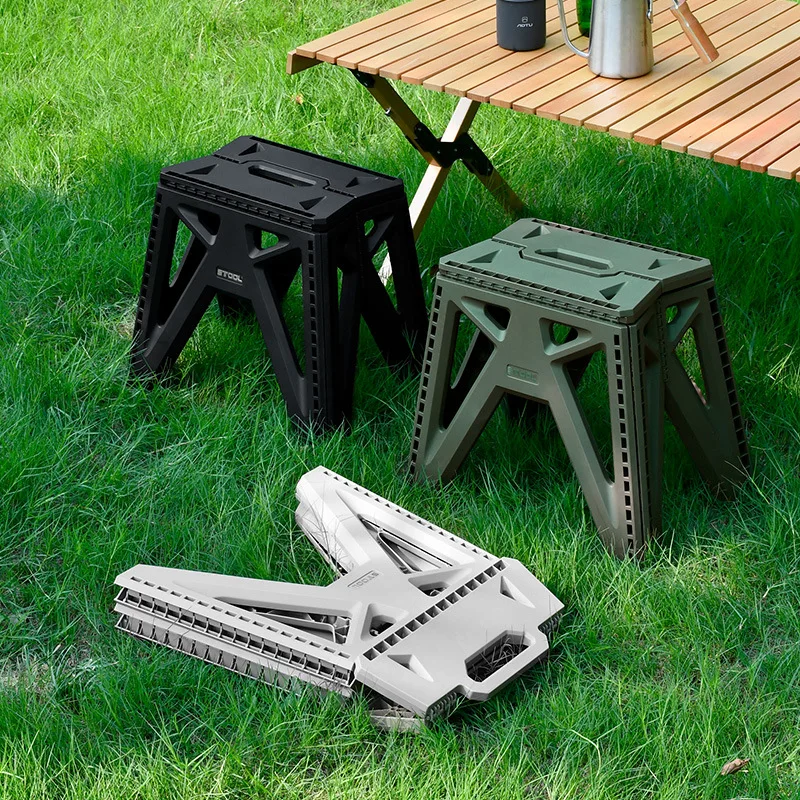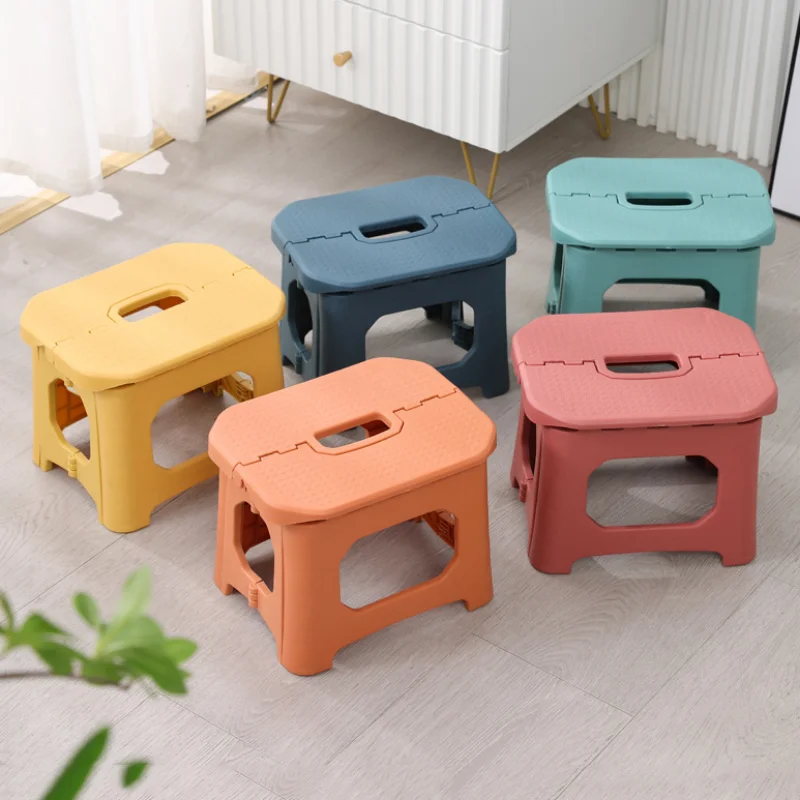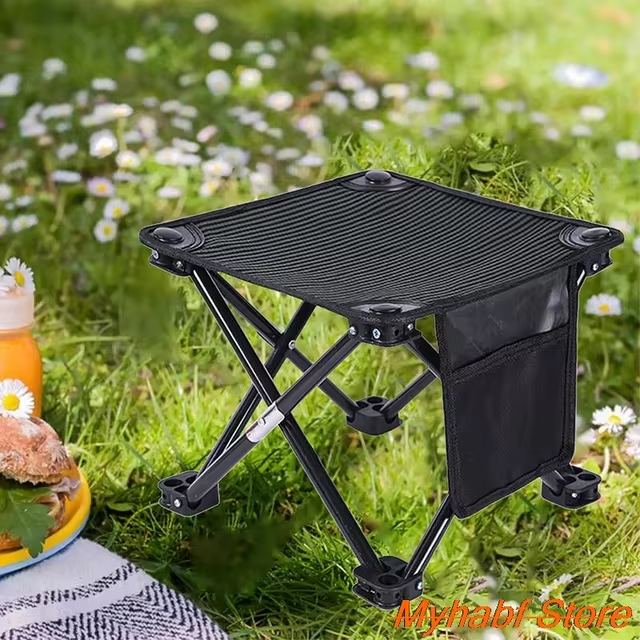Introduction to Folding Stools
Folding stools have become indispensable in modern living, offering a perfect blend of convenience, functionality, and style. Whether you’re a homeowner seeking versatile seating options, an event planner needing portable chairs, or an outdoor enthusiast looking for lightweight gear, folding stools cater to a diverse range of needs. In this comprehensive guide, we’ll explore the various aspects of folding stool, from their design and materials to their practical applications and tips for selecting the perfect one for your lifestyle.
Types of Folding Stools
Indoor Folding Stools
Indoor folding stools are designed to blend seamlessly with home interiors. Typically made from materials like wood, metal, or upholstered fabrics, these stools serve multiple purposes, such as extra seating during gatherings, footrests, or even temporary tables. Their aesthetic versatility allows them to complement various décor styles, from rustic to modern.
Outdoor Folding Stools
For outdoor enthusiasts, folding stools provide a convenient seating solution for activities like camping, hiking, fishing, and picnicking. Constructed from weather-resistant materials such as aluminum or sturdy plastics, these stools are built to withstand the elements while remaining lightweight and easy to carry. Many models feature additional functionalities like cup holders or storage compartments, enhancing their practicality in outdoor settings.
Specialized Folding Stools
Beyond general indoor and outdoor use, specialized folding stools cater to specific needs and professions. For example, photographers may use portable stools to steady their equipment, while artists might rely on lightweight seating for extended periods of creativity. Additionally, medical professionals sometimes utilize folding stools in clinical settings for flexible seating arrangements.
Materials Used in Folding Stool Construction
Wood
Wooden folding stools offer a classic and warm aesthetic. They are often crafted from hardwoods like oak, maple, or walnut, providing durability and a timeless look. While heavier than other materials, wooden stools are valued for their sturdiness and the natural beauty they bring to any space.
Metal
Metal folding stools, typically made from aluminum or steel, are praised for their strength and lightweight properties. Aluminum stools are particularly popular due to their resistance to rust and corrosion, making them ideal for both indoor and outdoor use. Steel models, on the other hand, offer enhanced durability and a sleek, modern appearance.
Plastic and Composite Materials
Plastic and composite folding stools are known for their lightweight and versatile nature. These stools are often colorful and come in various shapes and sizes, making them suitable for a wide range of applications. Modern composites can mimic the appearance of wood or metal while offering increased resilience and reduced weight.
Upholstered Folding Stools
For added comfort, some folding stools feature upholstered seats made from fabrics or leather. These designs prioritize ergonomic support and aesthetic appeal, making them ideal for indoor use in settings where comfort is paramount, such as bedrooms, offices, or lounges.
Practical Applications of Folding Stools
Home Use
In the home, folding stools offer versatile seating options that can adapt to various needs. They are perfect for accommodating guests, providing extra seating in living rooms, bedrooms, or dining areas. Additionally, their foldable nature allows them to be stored away when not in use, saving valuable space in smaller homes or apartments.
Events and Gatherings
Event planners and hosts appreciate the flexibility of folding stools for gatherings, parties, and outdoor events. Their portability makes it easy to transport and arrange seating as needed, ensuring comfort for attendees without the commitment of permanent chairs.
Workplaces and Schools
In workplaces and educational institutions, folding stools provide movable and flexible seating solutions. They can be easily rearranged to suit different activities, such as collaborative projects, presentations, or classroom settings. Their adaptability supports dynamic environments where traditional seating may not be practical.
Outdoor Activities
For those who enjoy outdoor activities, folding stools are indispensable. Whether you’re camping, hiking, fishing, or attending a sports event, a lightweight and durable folding stool can enhance your experience by providing a comfortable and portable seating option.
Selecting the Right Folding Stool for Your Needs
Assessing Your Requirements
Before purchasing a folding stool, it’s crucial to assess your specific needs. Consider factors such as the primary use, frequency of use, and the environments in which the stool will be utilized. Understanding your requirements will guide you in selecting a stool that offers the right balance of features and functionality.
Budget Considerations
Folding stools are available across a wide price range, from affordable plastic models to high-end wooden or upholstered options. Establishing a budget beforehand helps narrow down choices and ensures you select a stool that offers the best value for your investment without compromising on quality or essential features.
Testing for Comfort and Usability
If possible, test the folding stool for comfort and ease of use before making a purchase. Sit on the stool to evaluate its support and ergonomics, and assess how smoothly it folds and unfolds. Ensuring the stool meets your comfort and usability standards will enhance your satisfaction and long-term usage.
Reading Reviews and Recommendations
Researching reviews and seeking recommendations from others can provide valuable insights into the performance and reliability of different folding stool models. User feedback often highlights strengths and potential drawbacks that may not be immediately apparent from product descriptions alone.
Maintenance and Care Tips
Regular Cleaning
Proper maintenance extends the lifespan of your folding stool. Regularly clean the stool according to the manufacturer’s instructions, using appropriate cleaning agents for the materials involved. For wooden stools, periodic polishing may be necessary to maintain their appearance and protect the surface.
Inspecting for Wear and Tear
Routine inspections help identify any signs of wear and tear, such as loose joints, bent frames, or frayed upholstery. Addressing these issues promptly can prevent further damage and ensure the stool remains safe and functional.
Proper Storage
When not in use, store your folding stool in a dry, cool place to protect it from environmental damage. Avoid placing heavy objects on the stool or exposing it to extreme temperatures, which can compromise its structural integrity and appearance.
Lubricating Moving Parts
For stools with complex folding mechanisms, occasional lubrication of moving parts can enhance their functionality and reduce friction. Use lubricants recommended by the manufacturer to avoid damaging the stool’s components.
Customization and Personalization
Adjustable Features
Some folding stools come with adjustable features, such as height, back support, or seat angles, allowing users to customize the stool to their comfort preferences. These adjustable options enhance the versatility and ergonomic benefits of the stool.
Color and Design Options
Personalizing your folding stool can make it a unique addition to your space. Many manufacturers offer a variety of colors, patterns, and design elements, enabling you to choose a stool that reflects your personal style and complements your existing décor.
Add-Ons and Accessories
Enhancements like padded seats, armrests, or additional storage pockets can further personalize your folding stool. These add-ons improve comfort and functionality, making the stool tailored to your specific needs and preferences.
Safety Considerations
Weight Limits
Adhering to the weight limits specified by the manufacturer is crucial for safety. Overloading a folding stool can lead to structural failure, posing a risk of injury. Always ensure that the stool you choose can support the intended user’s weight.
Stability and Balance
Choosing a folding stool with a stable base and balanced design minimizes the risk of tipping or wobbling. Features like non-slip feet, cross-bracing, and a wide stance contribute to the stool’s overall stability during use.
Secure Locking Mechanisms
Reliable locking mechanisms are essential to prevent accidental folding while the stool is in use. Look for stools with sturdy latches or locks that securely hold the stool in both folded and open positions, ensuring safety and peace of mind.
Maintenance of Moving Parts
Regularly inspecting and maintaining the moving parts of your folding stool ensures that it remains safe to use. Look for signs of wear, such as frayed hinges or loose pins, and address them promptly to maintain the stool’s structural integrity.
Folding Stools in Different Settings
Residential Homes
In residential settings, folding stools provide flexible seating solutions that can adapt to various rooms and occasions. They are particularly useful in small apartments or houses where space optimization is essential. Additionally, their ease of storage makes them ideal for multi-purpose rooms like studios or small living spaces.
Commercial Establishments
Businesses such as restaurants, cafes, and event venues benefit from the adaptability of folding stools. They allow for quick rearrangements of seating arrangements to accommodate different group sizes and events, enhancing the management of space and customer experience.
Educational Institutions
Schools and universities can utilize folding stools in classrooms, auditoriums, and recreational areas. Their portability facilitates dynamic teaching environments and multipurpose spaces where traditional seating may not be as effective.
Healthcare Facilities
In healthcare settings, folding stools offer versatile seating options for patient areas, waiting rooms, and examination rooms. Their easy-to-clean surfaces and adaptable designs support both functionality and hygiene standards required in medical environments.
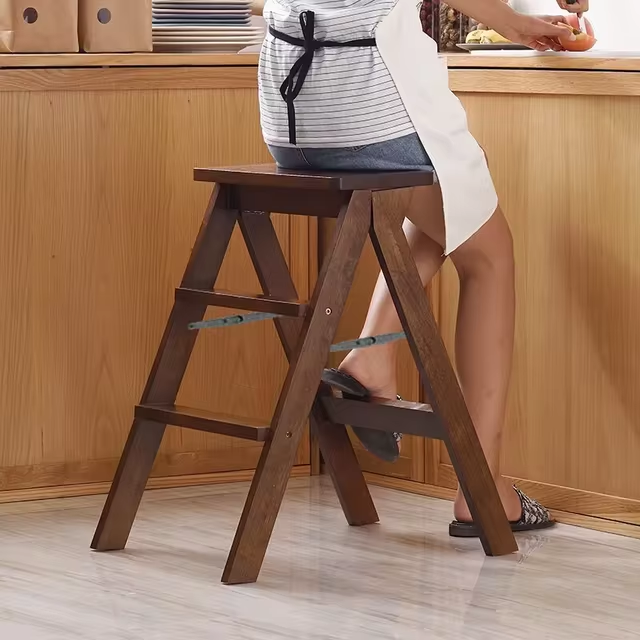 Conclusion
Conclusion
Folding stools are remarkable examples of versatile and practical design, seamlessly blending functionality with portability. Their wide range of applications, from enhancing home interiors to supporting outdoor adventures, underscores their importance in everyday life. By understanding the various types, materials, and features available, you can select the perfect folding stool that meets your specific needs and preferences. Moreover, prioritizing sustainability and proper maintenance ensures that your folding stool remains a reliable and eco-friendly addition for years to come. Embracing the flexibility and convenience of a folding stool can transform your space and lifestyle, providing adaptable seating solutions that cater to a multitude of situations. Whether you’re organizing a family gathering, embarking on a camping trip, or simply seeking additional seating at home, a folding stool stands out as a practical and stylish choice.

